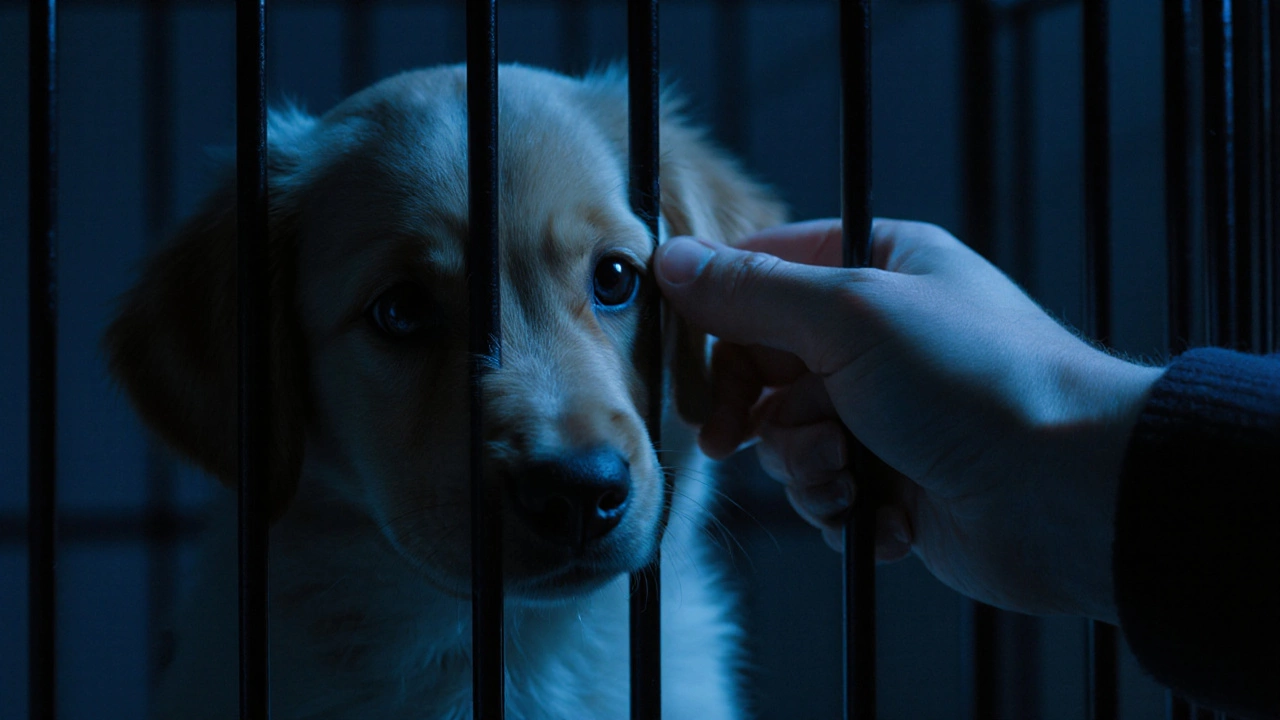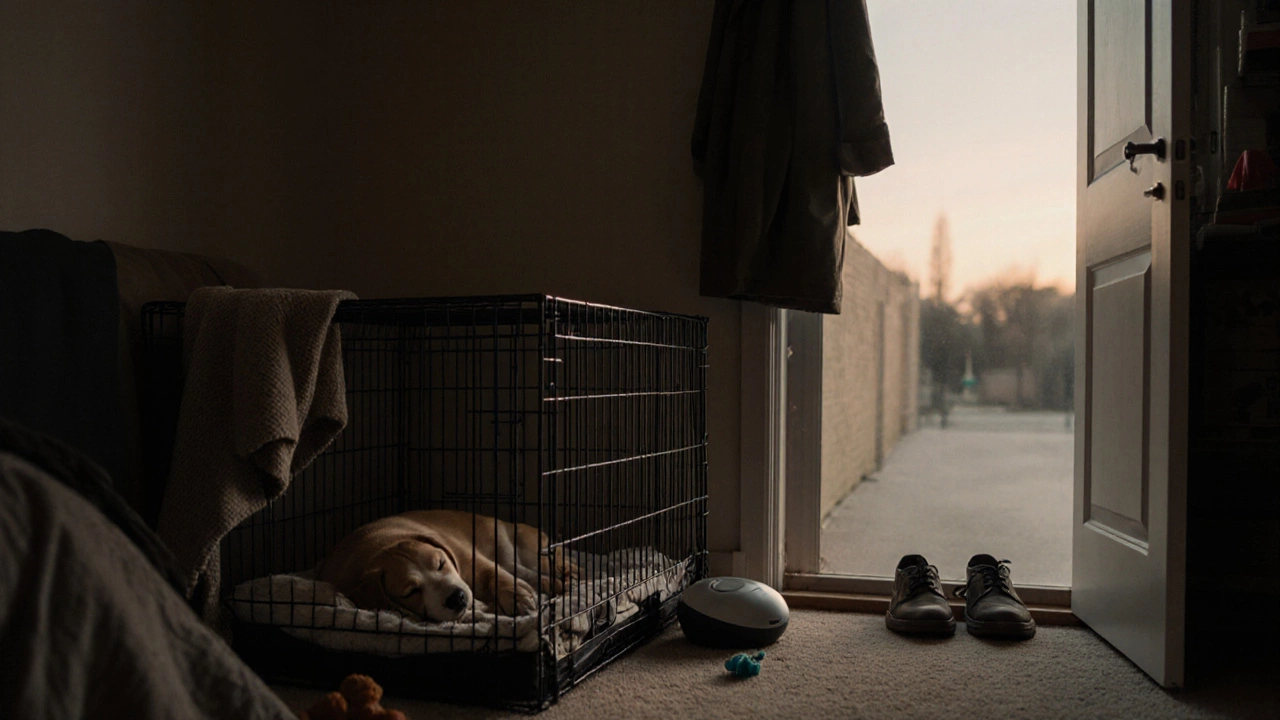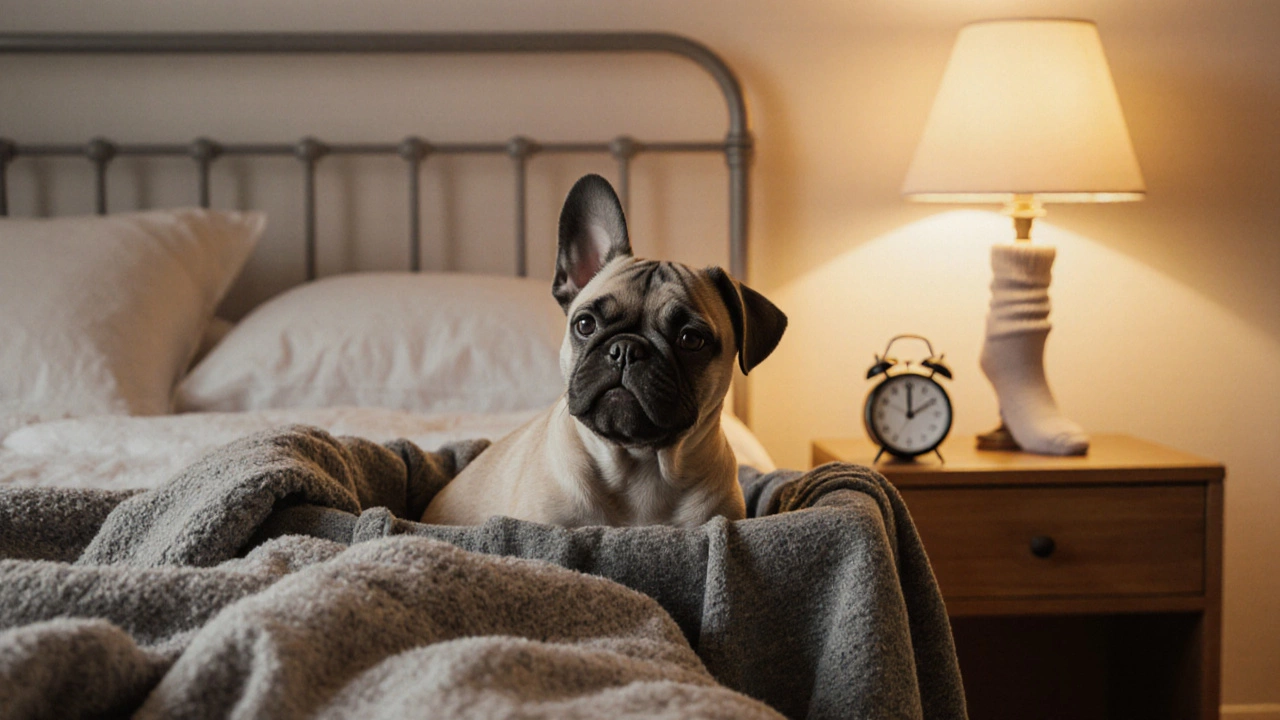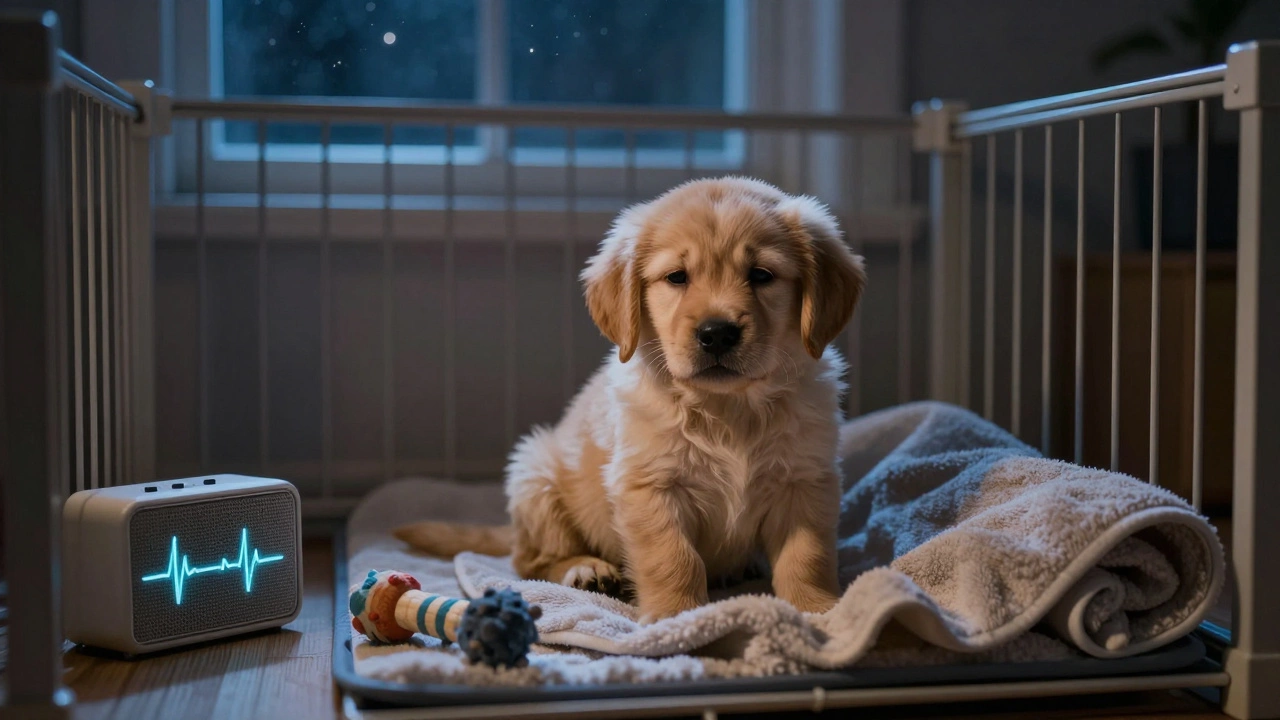First Night Puppy Care Estimator
Puppy Information
Enter your puppy's details to get personalized advice for their first night
Estimated Time to Stay
Bringing home a puppy is exciting-but that first night can feel like a minefield. You’ve got the crate, the chew toys, the puppy pads, and now you’re staring at that tiny bundle of fur wondering: should you leave a puppy alone on its first night? The answer isn’t simple. It’s not just about sleep-it’s about trust, safety, and setting the foundation for the next 12 years.
Why the First Night Matters More Than You Think
Puppies are social animals. In the wild, they’d be nestled against their mother and littermates, warm and safe. When you bring one home at 8 to 10 weeks old, you’re asking them to adjust to silence, cold floors, and total loneliness-all in one night. That’s a huge shift. Their little brains aren’t wired to handle it. If you leave them alone too soon, you’re not teaching independence-you’re teaching fear.
Studies show that puppies who experience high stress in their first 24 hours are more likely to develop separation anxiety later. That’s not a myth. It’s backed by research from the University of Pennsylvania’s School of Veterinary Medicine. The first night sets the tone. If they feel abandoned, they’ll spend the rest of their life checking the door when you leave.
What Happens When You Leave a Puppy Alone Too Soon
Let’s say you follow the old advice: "Put them in the crate and ignore the whining." You go to bed. Ten minutes later, you hear yelps. Then barking. Then a crash. You rush in and find shredded puppy pads, a chewed-up slipper, and a terrified pup cowering in the corner.
That’s not bad behavior. That’s panic.
Here’s what’s really going on:
- They’re scared. Their heart rate spikes. They don’t know where you are.
- They need to pee. At 8 weeks, their bladder control is minimal-maybe 1 hour max.
- They’re cold. Their body temperature regulation isn’t fully developed yet.
- They miss the sound of breathing. The warmth of other bodies. The rhythm of a pack.
Leaving them alone for 6-8 hours on night one? That’s not training. That’s cruel.
What to Do Instead: The First Night Game Plan
You don’t need to sleep in the same room forever. But you do need to make that first night feel safe. Here’s how:
- Place the crate in your bedroom. Not the basement. Not the guest room. Right next to your bed. This isn’t coddling-it’s security.
- Use a ticking clock or white noise. A soft, steady sound mimics a heartbeat. You can buy a heartbeat sound machine designed for puppies, or just put a wind-up alarm clock inside a sock. The rhythm helps them relax.
- Put something that smells like you in the crate. A worn T-shirt. Not a blanket they can chew into shreds-just a small piece of fabric with your scent. This gives them a physical anchor to your presence.
- Don’t respond to whining right away. Wait 5-10 minutes. If they’re just testing boundaries, they’ll quiet down. If they’re panicking, they’ll escalate. If they’re crying nonstop after 15 minutes, check on them-but don’t pick them up. Just rub their back and whisper, "It’s okay." Then leave.
- Take them out to pee before bed. And again right before you turn out the lights. No exceptions. A full bladder = a crying puppy.

How Long Should You Stay Nearby?
Most puppies need to be within earshot for at least the first 3 nights. After that, you can start moving the crate to the hallway. By night 5-7, if they’re sleeping quietly for 4+ hours, you can try moving it to another room.
But don’t rush it. If your puppy starts crying again when you move the crate, you went too fast. Go back to the bedroom for another 2 nights. Progress isn’t linear. It’s two steps forward, one step back.
What Not to Do
Here are the mistakes most new owners make-and how to avoid them:
- Don’t sleep with your puppy. It creates dependency. You’ll wake up to a 70-pound dog sprawled across your chest at 6 months.
- Don’t use the crate as punishment. If they associate the crate with being left alone, they’ll hate it. Make it a safe den-feed them meals inside, give them chew toys there, praise them when they go in.
- Don’t ignore loud crying. If they’re howling for 20+ minutes, they’re not being stubborn-they’re terrified. Check on them. They might need to pee, be too cold, or need reassurance.
- Don’t give in every time. If you pick them up every time they whimper, you’re teaching them that crying gets attention. Wait. Then respond calmly.

Signs Your Puppy Is Adjusting
By night 3 or 4, you should start seeing changes:
- They settle down within 10 minutes of you leaving the room.
- They sleep for 4+ hours straight without waking up.
- They don’t bark or whine when you leave the bedroom.
- They go into the crate willingly, tail wagging.
These are your green lights. You’re building confidence, not just compliance.
What If You Work Early Shifts?
Some owners have to leave at 5 a.m. That’s tough. But you still don’t have to leave your puppy alone on night one.
Here’s what works:
- Ask a friend or neighbor to stay over the first night.
- Use a pet camera with two-way audio. Talk to them before you leave. They’ll recognize your voice.
- Set up a puppy-safe area with a bed, water, and toys near your bedroom door. Let them sleep just outside your room until they’re 12 weeks old.
You don’t need to be perfect. You just need to be consistent.
Final Thought: It’s Not About the Night-It’s About the Relationship
Leaving a puppy alone on night one isn’t a training tactic. It’s a test of your patience. The goal isn’t to make them tough. It’s to make them feel safe. When they know you’re not going to abandon them, they’ll learn to trust you. And that trust? That’s the foundation of every good dog-owner bond.
That first night? Don’t rush it. Sit with them. Whisper to them. Let them hear your breathing. You’re not spoiling them. You’re giving them the one thing they can’t get on their own: safety.
Should I let my puppy sleep in my bed on the first night?
No. Sleeping in your bed on night one creates a habit that’s hard to break. Your puppy will expect it every night, and by the time they’re full-grown, you’ll be sleeping on the floor. Instead, keep their crate next to your bed. That way, they feel close to you without developing dependency on sharing your bed.
How long can a puppy hold its bladder on the first night?
An 8-week-old puppy can usually hold it for about 1 hour. A 10-week-old might make it to 1.5 hours. That’s why you must take them out right before bed and plan for at least one middle-of-the-night potty break if you’re sleeping far away. Never assume they’ll sleep through the night without needing to go.
Is it okay to ignore a crying puppy at night?
Only if you’re sure they’re not in distress. A few whimpers are normal-they’re adjusting. But if they’re howling, pacing, or scratching at the crate for more than 15 minutes, they’re not being stubborn. They’re scared or need to pee. Check on them. Calm them. Don’t punish them. Ignoring panic teaches fear, not independence.
What if my puppy won’t stop barking at night?
First, rule out physical needs: do they need to pee? Are they too cold? Is the crate too big? If all that’s fine, try using a heartbeat sound machine or a piece of clothing with your scent. Don’t yell or open the crate every time. Wait 10 minutes, then go in quietly, rub their back, say "It’s okay," and leave. Repeat until they calm down. Consistency beats force.
When can I start leaving my puppy alone in another room?
Wait until they’re sleeping quietly for 4+ hours straight, usually around night 5-7. If they start crying again when you move the crate, go back to your bedroom for 2 more nights. Rushing this step is the #1 reason puppies develop separation anxiety later. Patience now saves heartbreak later.


